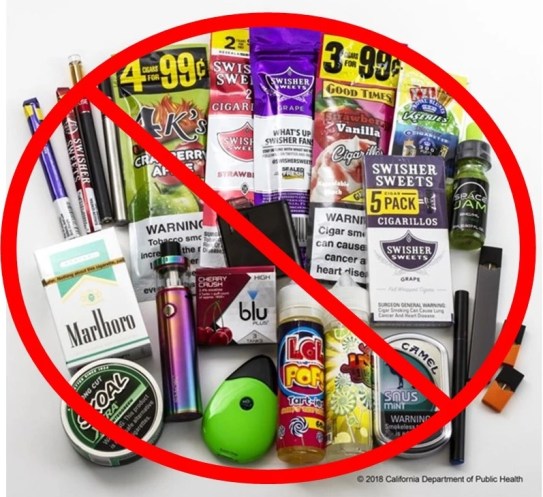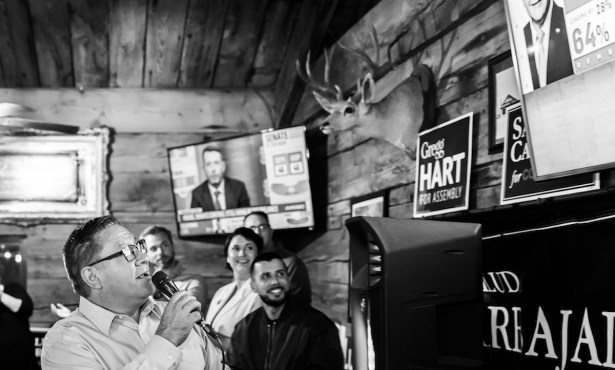Goleta Will Vote on Sales Tax and Flavored Tobacco Ban
Measure B and Measure C Go to the Voters on November 8

Goleta voters will decide “yea” or “nay” on two city measures on November 8: Measure B, which adds a penny-on-the-dollar to the sales tax; and Measure C, which bans flavored tobacco and vape cartridges from being sold within city borders. Ballots are already out in voters’ hands and being collected at the Elections offices, but here’s a look at the two measures for those who have yet to cast their ballot.
Measure B
In an impartial analysis of Goleta’s Measure B, the city’s attorney identifies that 0.7 percent of the current 7.75 percent sales tax actually goes to the city. The lion’s share — 7.25 percent — goes to the State of California as its base sales tax rate, a fraction of which is returned to the city and the County of Santa Barbara. Another half a percent is the county’s “lane and train” Measure A transportation tax.
Goleta has the lowest sales tax of any city on the South Coast. Measure B would raise that sales tax to 8.75 percent in 2024, and the one percent increase would stay entirely with the city and not be shared with either the state or the county. The latter is important to city officials, who have fought with the county for years over a mandatory sales and property tax split. Part of the city’s incorporation vote in 2002 required that some of the taxes the county was accustomed to getting from the area would still flow to the county. The resulting Revenue Neutrality Agreement promised to the county half of all Goleta property tax and 30 percent of sales tax received. In addition to the approximately $7 million in lost revenue, what rubs everyone in Goleta City Hall the wrong way is the fact that the deal was made to last in perpetuity.
In the “yea” argument, the proponents — all of whom sit on the city council — contend the penny tax funds are necessary to fix the potholes and resurface Goleta’s roads, as well as fund projects like Fire Station 10 in Western Goleta, the city’s ambitious creek and watershed restoration plans, and the repairs needed to the Goleta Community Center. The penny sales tax is expected to raise about $10 million, in large part from the robust big-box and Target retail sales, which the city argues come from shoppers from all over the South Coast.
Four former councilmembers and current Councilmember Roger Aceves signed the opposition argument against Measure B, citing the facts of today’s increasing inflation, the lack of a sunset date for the penny tax, and the burden that a greater sales tax places on those least able to afford it. Instead, they argue, the city should practice austerity and reduce expenditures.
Sign up for Indy Today to receive fresh news from Independent.com, in your inbox, every morning.
Measure C
Some could contend that the arguments about Measure C are anything but impartial, pitting the unhealthy certainty of nicotine addiction against traditional tobacco usage among Middle Eastern cultures. A similar proposition is on the statewide ballot — Prop. 31 — which also bans flavored tobacco products and is opposed by companies like R.J. Reynolds Tobacco and Philip Morris. The city attorney’s analysis notes Goleta’s ordinance is more strict than the language of the state proposition. Goleta would also ban flavored tobacco intended for use by hookah waterpipe smokers and in loose-leaf tobacco and cigars.
Goleta banned flavored tobacco a year ago, but smoke shops banded together and held petition drives to put the ban to a vote. During council deliberations, opponents of a ban raised the point that hookah was a Middle Eastern tradition that often included fruit-flavored tobacco. To ban it would be discriminatory, some said.
The tobacconists contended that a ban would put them out of business. In their argument against Measure C, they add that people currently addicted to nicotine would have no recourse but to take to cigarettes if flavored vape products were to become unavailable in Goleta. They state they agree youth should not have access to any tobacco products but disagree that this is a reasonable way to reach that goal.
For proponents of Measure C — all five of the city’s elected officials — the candy flavors and bright packaging of vape cartridges are intended to attract youthful eyes. They are harming another generation with nicotine addiction, potential chemical damage from burned flavorings, and potentially toxic and carcinogenic substances. Studies by the Centers for Disease Control released this year find that nicotine harms the developing brain and that 85 percent of young people who vape — of middle school and high school ages — choose flavored cartridges.
For clarity’s sake, the city attorney’s impartial analysis states a “yes” vote on Measure C would ban flavored tobacco products. A “no” vote would allow them.
Support the Santa Barbara Independent through a long-term or a single contribution.




You must be logged in to post a comment.